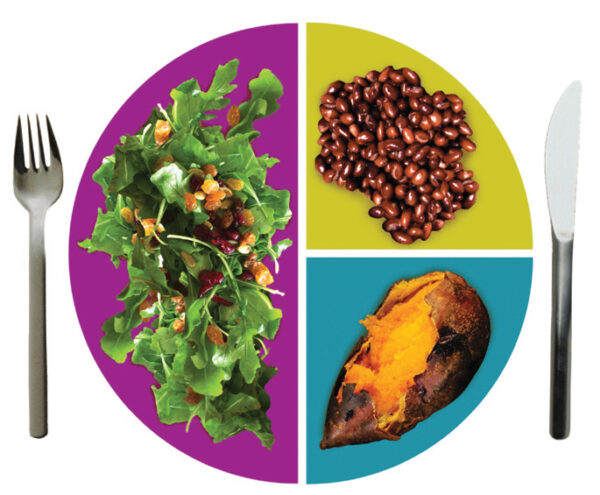By Peter N. Landless and Zeno L. Charles-Marcel
Much is written about diabetes and its management. I have family members who have type 2 diabetes who have been told that eating protein and fats (including meat), with low carbohydrates (starches), is helpful in prevention. Should I follow this advice?
Type 2 diabetes (T2D) is a very common disease and is increasing at alarming rates worldwide. We have written about this problem numerous times because of the relentless increase in numbers of the disease.
In 2015 it was estimated that 415 million people worldwide have T2D. Despite the many efforts at education and prevention, it’s estimated that—should the Lord tarry—by 2040 the number will approach 650 million! This represents a huge burden of disease with many complications, including being the commonest cause of blindness and kidney failure in many parts of the world. This issue should not be taken lightly.
The cause of T2D is an interplay between genetic makeup and diet, and exercise (genes and environment, moderated by lifestyle and choices). A healthful diet, regular exercise, and maintaining normal body weight (body mass index) are very important in the prevention, control, and reversal of T2D. We will focus on the dietary component.
Robust data from the Adventist Health Studies1 indicates that nonvegetarians have a significantly higher risk of T2D than total vegetarians, ovo-lacto vegetarians, and even semi-vegetarians. Mortality rates are higher in nonvegetarians than in vegetarians (all types). Because the prevalence of vegetarians is relatively low in many countries (sadly, even in the Adventist Church), apart from the Adventist Health Studies there have not been large studies on vegetarians to compare outcomes. Some, even within the church, have questioned whether the Adventist Health Studies represent an “echo chamber” of the church speaking to itself.
In the reputable PLOS Medicine2 resource of June 14, 2016, a large data analysis of various diets in the prevention of T2D in approximately 200,000 people showed results that confirm and substantiate the already-solid findings of the Adventist Health Studies. The point is further emphasized that the quality and content of the vegetarian diet affects outcomes. Investigators emphasized the importance of healthful and unhealthful plant-based diets, especially in the reduction of T2D. The exclusion or even reduction of flesh foods alone does not make the diet optimal.
In this large study, investigators created an overall plant-based diet index (PDI). Plant foods received positive scores; and animal foods, which included animal fats, dairy, eggs, fish/seafood, poultry, red meat, and miscellaneous animal-based foods, received reverse scores. Additionally, there was a healthful plant-based diet index; foods such as whole grains, fruits, vegetables, nuts, legumes, and vegetable oils received positive scores. Less-healthful plant foods (such as fruit juices, sweetened beverages, refined grains, potatoes, sweets/desserts) and animal foods received reverse or negative scores.
Using these tools, researchers analyzed 4,102,369 person-years of follow-up and documented 16,162 type 2 diabetes cases over this time. Other factors that influence the outcomes were considered, including the body weight (body mass index [BMI]). An elevated BMI was associated with increased T2D in those with unhealthful plant-based diets as well as those consuming animal products.
Researchers concluded that plant-based diets, especially when rich in high-quality plant foods, are associated with a significantly lower risk of developing T2D. They reference the Adventist Health Studies (quoting the church’s recommendation of a balanced vegetarian diet) contributing to the body of science that supports the shift to diets rich in healthful plant foods and reducing less healthful plant and animal foods.
Science again confirms that if we believe His prophets we will prosper. Sadly, we become accustomed to the echoes we have heard over the years, to our detriment. n
1 https://publichealth.llu.edu/adventist-health-studies
2 http://journals.plos.org/plosmedicine/
Peter N. Landless, a board-certified nuclear cardiologist, is director of Adventist Health Ministries at the General Conference.
Zeno L. Charles-Marcel, a board-certified internist, is an associate director of Adventist Health Ministries at the General Conference.



